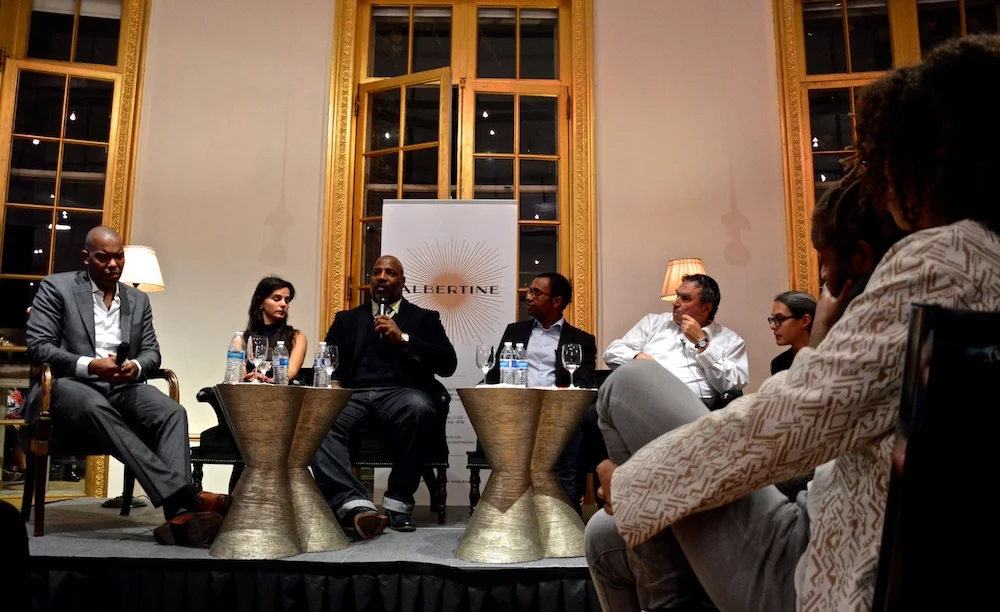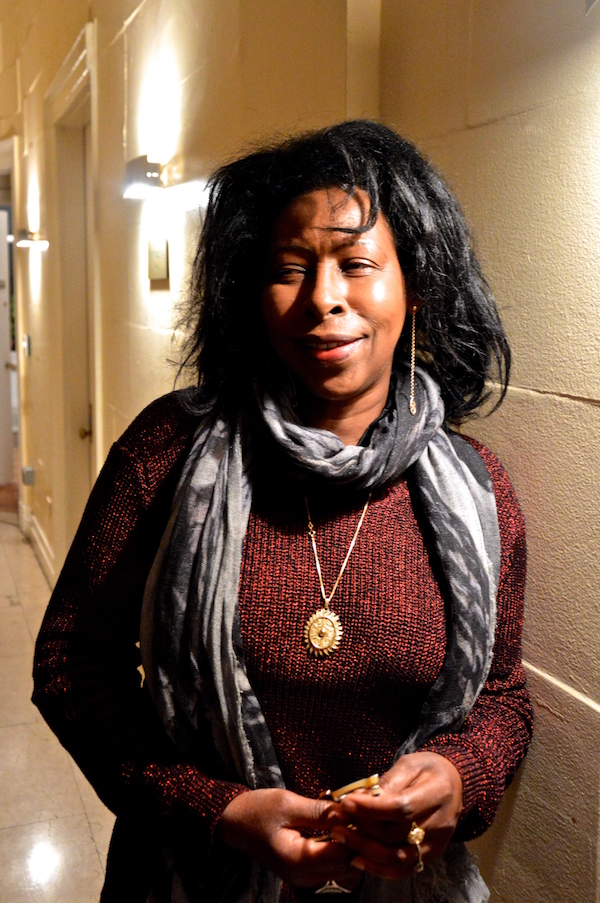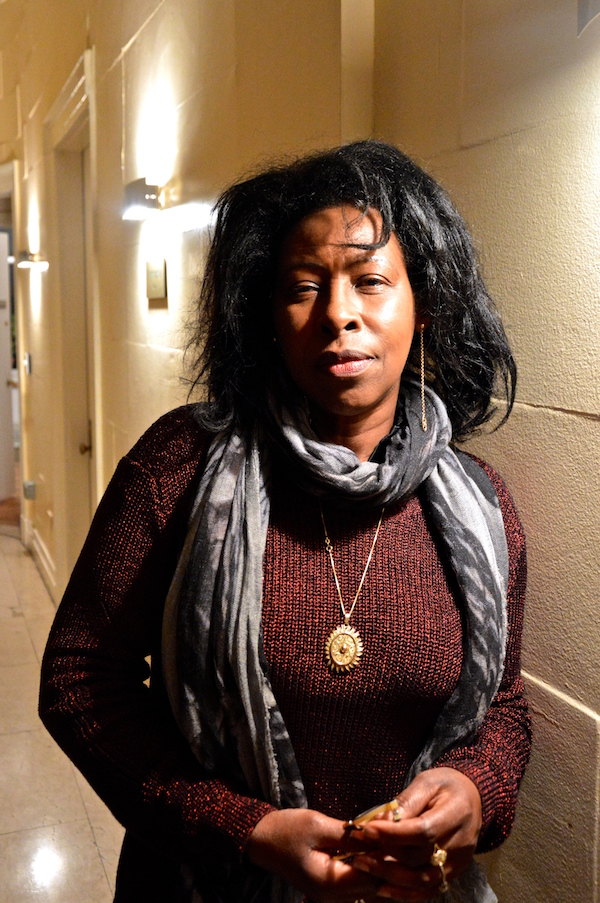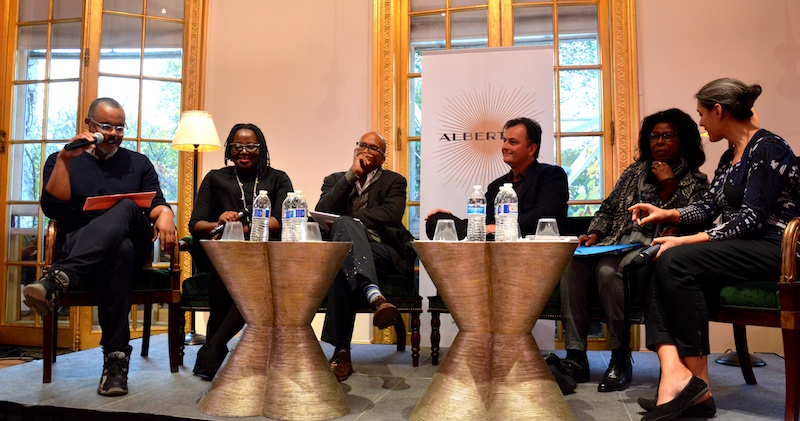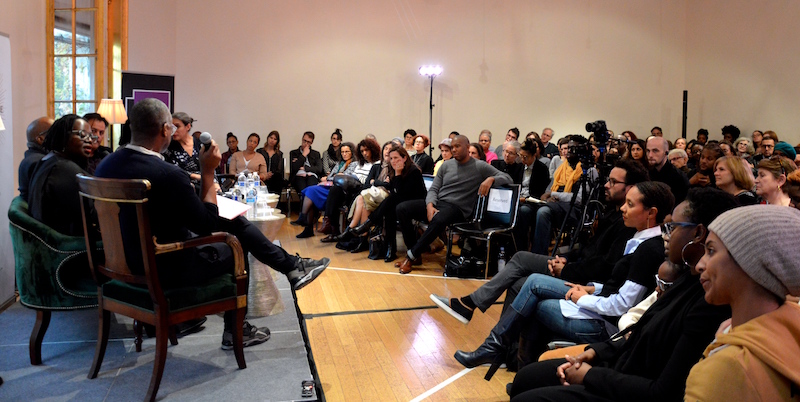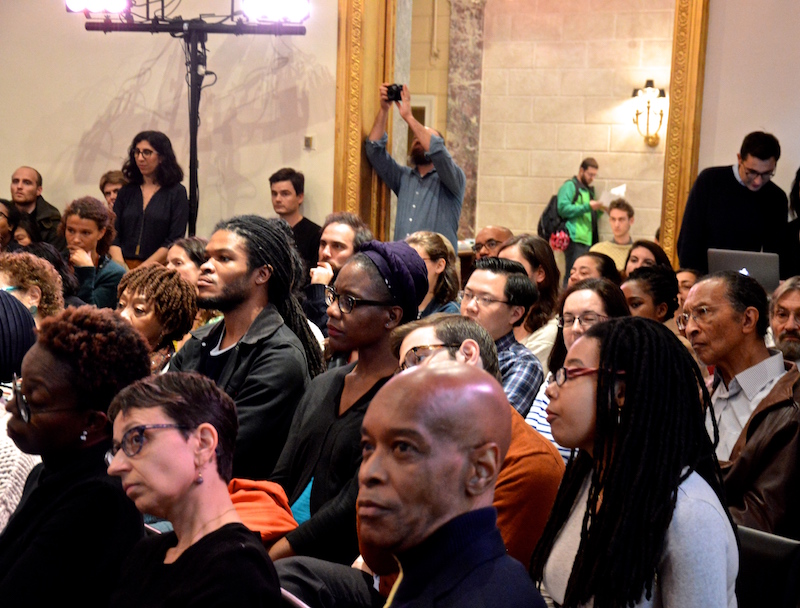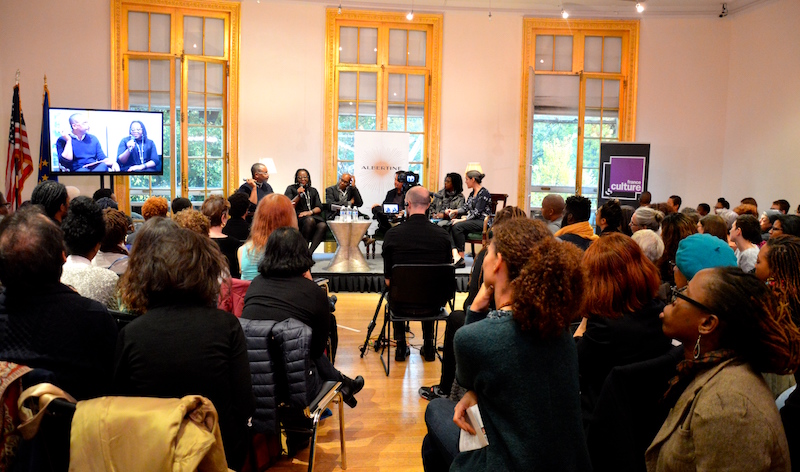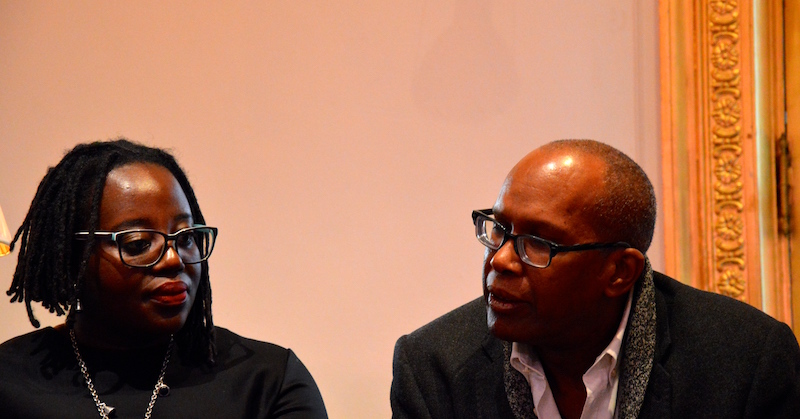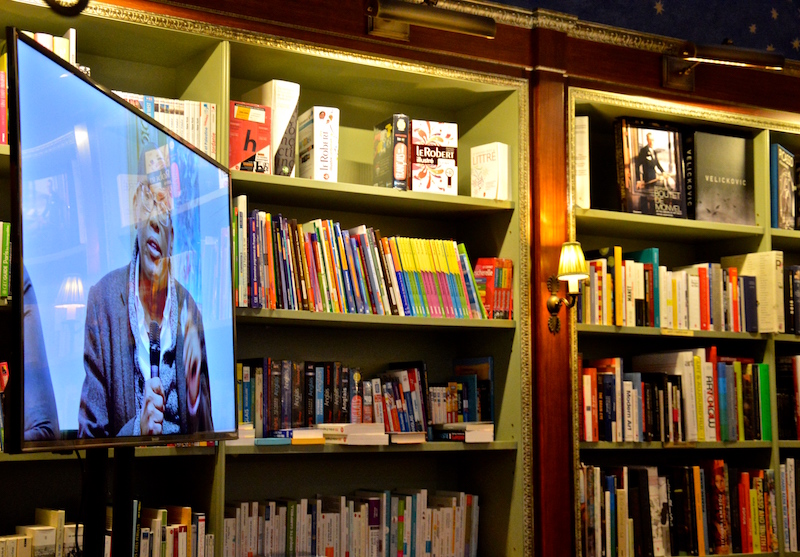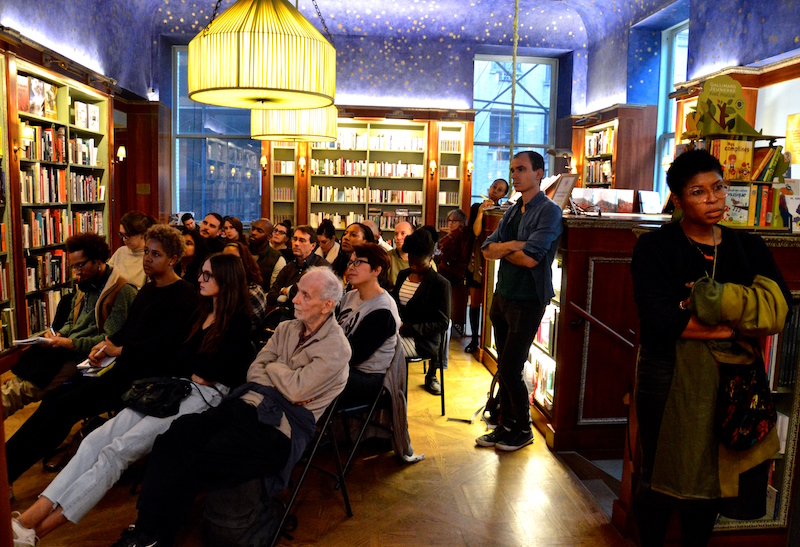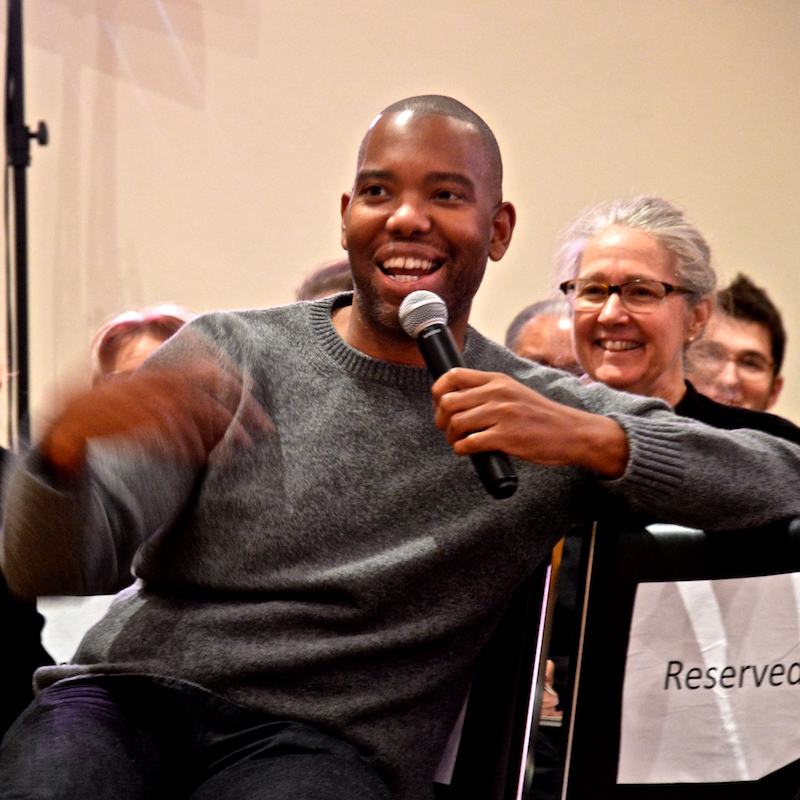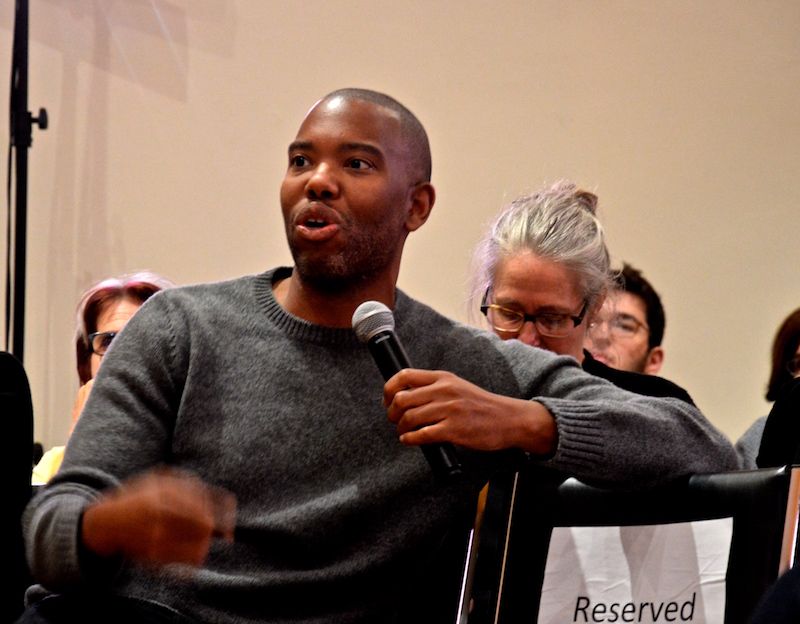FESTIVAL ALBERTINE: DAY FOUR
/By Emily Lever, Tricia Woodcome, Cerise Maréchaud, and Prune Perromat with special thanks to French Morning
AMERICA, EUROPE AND THE BLACK LITERARY IMAGINATION
Since the era of the Lost Generation, French and American literary cultures have been fascinated with each other. The fourth panel of the Festival Albertine , titled “Europe and America in the Black Literary Imagination,” examined this dynamic within the literature of the African diaspora in France and America (and often in the Caribbean and West Africa).
As the sun set behind the panel, Chris Jackson, the editor of Ta-Nehisi Coates’ Between the World and Me among other books, moderated a discussion between novelists Darryl Pinckney and Scholastique Mukasonga and scholars Maboula Soumahoro and Laurent Dubois.
Black American writers like James Baldwin, Richard Wright and Chester Himes emigrated to France during the Jim Crow era in search of respect for their human rights. Pinckney, the author of a novel titled Black Deutschland about a young black American who settles in Berlin, contended that “being always on the move” is just as integral to black literature as the phenomenon of double consciousness.
For Soumahoro, the black experience in France is defined by a different duality. The arrival of African-Americans seeking refuge was “convenient for France,” allowing France to seem racially progressive and proclaim itself “blind to race” while French people of color remained marginalized. In this environment, African-American culture, particularly hip-hop since the 1980s, “helped people of color in France articulate and theorize” their experience of “being racialized when everyone tells you you’re not,” said Soumahoro.
Across the vast spectrum of experiences of the African diaspora, what, if any, do black people on both sides of the Atlantic have in common? “It’s not that there is…any kind of essence, but there is a shared history that is refracted in all these different cultural forms,” said Dubois, suggesting than Pan-African identity is both a myth and a reality. In the words of Oscar Wilde, black people in France and the United States are two people divided by a common ancestry.
BLACK LITERARY TRADITION: FROM AMERICA TO FRANCE
CHRIS JACKSON: “There’s always a romance around this idea of Paris – a place where for African American writers in particular there are sort of three kinds of liberation happening for them: A place where they went to find themselves…a place where they could find the larger world…a place where they were first exposed to the diaspora… and to see themselves as Americans, even, with more clarity.”
DARRYL PINCKNEY: “It’s always been an irony that of course, the centers of abolitionism and the struggle for freedom are also always the capitals of empire. And so this double consciousness as Dubois would call it is simply a part of the black literary tradition. As well as always being on the move.”
LAURENT DUBOIS: “It’s interesting that the later African American writers who came…rejected the idea that there was in this encounter…something essentially, particularly Baldwin, that connected writers across the diaspora as the French thought about it.”
SCHOLASTIQUE MUKASONGA (Translated from the French): “So we are talking about these migration movements from the Americas towards France. The atypical thing I want to share with you is that I come, in fact, from a Belgian colony.”
PAN AFRICAN IDENTITY: DOES IT EXIST?
LAURENT DUBOIS: “People are kind of recognizing parts that are aspects of a deep past of exile, the history of slavery, the history of passage, that are being articulated in all these ways. It’s not of course that there is a kind of essence at all, but there is a kind of shared history that is refracted in all these different cultural forms.”
MABOULA SOUMAHORO: “Everything binds us, and nothing binds us. I think culture…history…displacement, marginalization, poverty, police brutality…[this] very construction of blackness, or non-whiteness, has been going on for a long time. This is what binds us. This is what we share, what those communities share….”
EXPATS OR EXILES?
SCHOLASTIQUE MUKASONGA (Translated from the French): “What France gave me was language. It gave me an opportunity, and it also gave me a passport to help me escape the genocide”
DARRY PINCKNEY: “I’ve always thought of reading and being a writer as a chance to get away, a chance to declare your independence, to define yourself, and to make up yourself as you go along.”
MABOULA SOUMAHORO: “When they left, they often left to escape the hyper-racialization in the United States. So when they came to France, they became sometimes de-racialized. They were seen partly as African Americans, partly as black, but mostly as Americans. They were associated with a powerful nation. So it’s as if in that particular instance, nationality trumped race.”
FROM HYPER-RACIALIZED U.S. TO A “DE-RACIALIZED” FRANCE
MABOULA SOUMAHORO: “Unable to talk about race, France has hidden behind religion. Religion, and Islam in particular has been the tool found by France to talk about racial issues – but always sideways, never directly.”
DARRYL PINCKNEY: “I don’t think that Europe really has come to terms with the cost of colonialism and imperialism. The violence that went on in Africa was a legacy of the European presence, of European control.”
SCHOLASTIQUE MUKASONGA: “I don’t look at myself or consider myself as a black person, because then I don’t see myself.”
“When I was born the Tutsis were called cockroaches… ‘You are all cockroaches. There is nothing human about you. Just look at yourselves.’ And at a certain point I just simply didn’t consider myself as a woman, as a girl, as a normal human being. When I looked at myself I was a cockroach.”
HOW AFRICAN-AMERICAN CULTURE INFLUENCED FRENCH CULTURE
MABOULA SOUMAHORO: “I think the contributions made by African Americans…has been to perhaps help those French people of color…articulate or theorize on racial identity that is a taboo topic in France. France is France. France is blind to race.”
LAURENT DUBOIS: “For the Civil Rights struggle is…the thing that America so proudly exported to the rest of the world. The black freedom struggle in America became the model that other picked up, mostly through the circulation of books…”
LANGUAGE AND ACCENTS AS STIGMA AND PRIDE
CHRIS JACKSON: "Baldwin once said that he “started to reflect on English as being a thing that defined him more than he realized….He started to see his identity as something removed from Afro-centric point of view but also could never be Eurocentric and kind of put him in this space that really was, for better or worse, an American identity.”
SCHOLASTIQUE MUKASONGA (Translated form the French): “I have an African accent, and that accent is my identity. An accent is an identity. I may be a writer, I may be an intellectual…but I only learned French when I started to go to school. It’s actually a beautiful gift that Belgian colonial power gave us...”
“These encounters about your accents, although they can be hurtful, [are] reassuring because it is kind of like a little bird that left a little string of stones. It means that although you’re French, you have been able to maintain your identity.”
